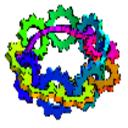Yahoo Answers is shutting down on May 4th, 2021 (Eastern Time) and beginning April 20th, 2021 (Eastern Time) the Yahoo Answers website will be in read-only mode. There will be no changes to other Yahoo properties or services, or your Yahoo account. You can find more information about the Yahoo Answers shutdown and how to download your data on this help page.
Trending News
"Scientists claims about the natural world have been right about 17% of the time."?
How would you even start to justify a claim like this?
The statement was posted as part of an answer to this question:
http://answers.yahoo.com/question/index?qid=201401...
The answer given (in full) was:
"For those who keep score - in it's entire history (1500 to the present) so far as we know today - Scientists claims about the natural world have been right about 17% of the time."
@'adaviel': Thanks - interesting links.
@'Pavouk': A very good summary of the problems with calculating a figure.
@'Old Pilot': Very good examples of how science improves on earlier findings.
@'CRR': David Suziki was probably only talking about ideas on the frontier of science (those which had not yet been properly tested), and was probably being very 'picky' about what he classed as 'wrong'. Similarly your moon 'theories' shouldn't be considered as anything more than competing hypotheses.
4 Answers
- PavoukLv 57 years agoFavorite Answer
I don't think you can justify that answer. I reckon it's a guess. Or since it's an accurate figure, it's probably made up. (A guess would be "around 15% to 20%.")
For a start what is meant by 'claim'. Is it some scientist down the pub saying, "You know. I reckon so and so is true." Or does it only count if a paper has been presented at an official forum? Or maybe it has to be a paper that has been published in a reputable scientific journal. I'll leave others to say what is an official forum or a reputable scientific journal.
If you can tie down which forums and journals then you can trawl through all the scientific papers etc. and compare them to what we know today. Of course, you would have to be an expert in all things so that you can judge whether the original paper is right or wrong.
Then we have to ask, "Who is a scientist?" In alternative science and particularly medicine there are a lot of hard working people who test their products who should be called scientists. But there are many more who are wishful thinkers. People who say, "This must work because..." and then ignore all evidence. They call themselves scientists but, as I said, they ignore all evidence to the contrary. Then what about a highly respected scientist who then spouts utter garbage when talking about another field of science. (I can think of at least one Nobel Prize winner who was guilty of that.)
I haven't even started on what is 'wrong'. Was Newton wrong with his laws of motion? Was Galileo wrong when he reported what he saw? Both of their results have been overtaken by more accurate measurements and better formulations. But within limits, what they said still works.
However if you take everything into consideration then my feeling is that of serious claims 17% is a low figure. Real science is all about people proposing ideas and others shooting them down. Real scientist are the most skeptical people. There are so many ideas that fall at the first hurdle. If, however, you only include claims that have passed the first round of peer review and validation then the failure rate is much lower and I would put the percentage of claims that are correct much higher - way above 50%.
Of course since the overwhelming majority of scientists work in industry and their work relates to commercial products. Include these claims and you are looking at well over 99% correctness.
- adavielLv 77 years ago
Obviously you can't prove that, since how do you know that you are right now and they were wrong before. But you can say that the idea of what is correct has changed over time.
One study found that, in medicine, "truth" had a half-life of about 45 years - after 45 years, half of the published ideas on surgery were now considered incorrect by a panel of experts.
Source(s): http://www.sciencedirect.com/science/article/pii/S... http://www.newscientist.com/article/mg21528831.800... - OldPilotLv 77 years ago
“The rigor of a science is directly proportional to it’s’ ability to predict” - John C. Campbell
A theory is judged by its’ usefulness. Even theories that are flawed are kept and used as long as there are situations where they are known to be useful. The current state of Physics is a good example:
Newton: Does NOT give correct answers for cases involving speeds that are a significant fraction of the speed of light (Special Relativity,) large acceleration fields (Black Holes, etc - General Relativity), or things atom size and smaller (Quantum Mechanics). But, the math is easy and it gives very good answers for cases that do not include any of the above.
Special Relativity: Does almost everything that Newton does (SR cannot handle acceleration), plus constant velocities that are a significant fraction of the speed of light, but the math is more complicated.
General Relativity: Does everything that Newton and Special Relativity does, plus accelerated frames of reference. But, the math is very difficult and it fails at the quantum scale.
Quantum Mechanics: Is useless for things larger than an atom, but dead on correct for things atom size and smaller.
None of the above provides correct answers for things that are atom size and smaller and also massive/high energy (Black Holes, Big Bang, etc.) So, we have no generally accepted theory for that case.
Philosophiæ Naturalis Principia Mathematica, Latin for "Mathematical Principles of Natural Philosophy", often referred to as simply the Principia, is a work in three books by Sir Isaac Newton, in Latin, first published 5 July 1687. We know that Newton is "wrong" by a little bit. Yet, he is right enough to calculate the paths of spacecrafts accurately enough to hit Mars and send other crafts by selected planets and then into interstellar space. But, sadly he is wrong. Is Newton counted in the 83% that are/were wrong?
- CRRLv 77 years ago
I doubt it is exact but it's probably about right. I heard David Suziki speak one time and he said most of what he learned and taught about genetics turned out to be wrong.
I know of 4 different theories for the formation of the moon. At least 3, probably all 4, are wrong. That's 25% or less.
Source(s): CR YEC




